Don Preston | Interview | Navigating Sonic Chaos from The Mothers of Invention to a Solo Legacy
Don Preston is most well known as the keyboardist for Frank Zappa’s Mothers of Invention and later as the co-founder of the Grandmothers.
His career is a journey through Zappa’s complex, often chaotic orchestral world, where he navigated surreal musical landscapes with the calm and expertise of a seasoned veteran. His adaptability and resilience, reflected in many magical moments, have made him a legendary figure in avant-garde music. Preston’s collaborations with icons such as John Lennon, Jefferson Airplane, Captain Beefheart, and the Residents further solidify his status as a key figure in experimental and rock music. At 91 years old, Don will soon be performing on a limited number of dates in Europe with his bass guitar, a piano, and an assortment of his trusty electronics.
Don Preston European Tour Dates:
24 September 2024: Porgy & Bess Jazz & Music Club, Vienna, Austria
25 September 2024: Prague, Czech Republic
26 September 2024: Prague, Czech Republic
29 September 2024: Cyriaci Chapel, Nordhausen, Germany
30 September 2024: B-Flat Jazzclub, Berlin, Germany
2 October 2024: De Bosuil, Weert, The Netherlands
3 October 2024: Rüsselsheim, Germany
6 October 2024: Theaterhaus, Stuttgart, Germany
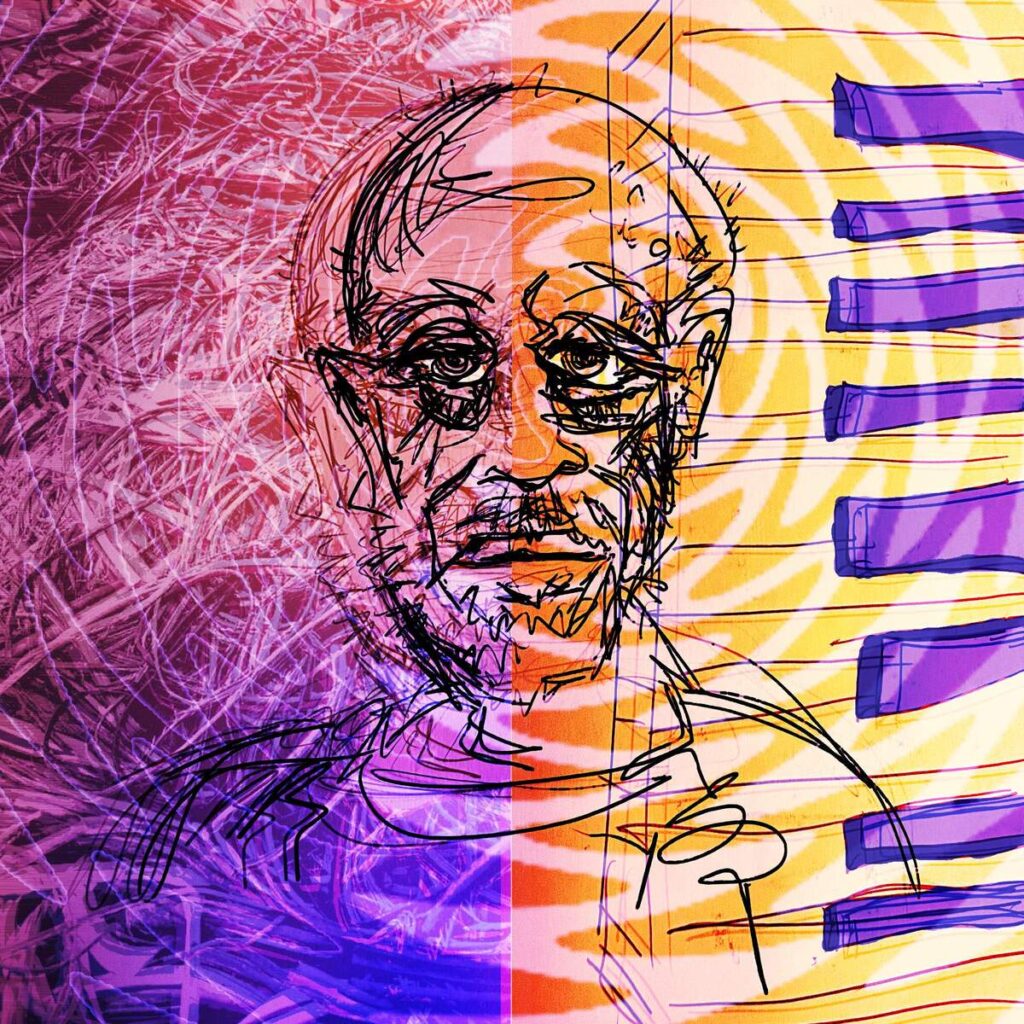
“It’s strange when I play music”
Hey Don. Thanks for joining us. How are you doing?
Don Preston: Good, thanks.
You were raised in a very musical household. How did that shape your upbringing? What can you tell me about your childhood and your family?
My dad was in different bands traveling across the country. I grew up sleeping in dresser drawers in hotel rooms. Then, he decided to settle down when I became school-aged. So, he got a job writing music for NBC in Detroit. He had a morning show and had to write arrangements for it almost every day. It was a daily show, but it had a big band in there, you know? It was like a breakfast show. So, that was all cool. And he did that for about 25 years, and then they laid him off. He said, “They didn’t even give me a pen.” But he continued working after that until he died. He almost died on stage. He was good. I played bass with him a few times. I play upright bass alto. I grew up in Detroit, and Detroit was a huge place for playing music. You could almost go anywhere, any day of the week, anytime, and find a place to play. And I did. I just kept going all over the place all the time. I played bass with Elvin Jones and Tommy Flanagan for two years at an after-hours club there, which was probably the greatest learning experience of my life.
And those are some jazz guys, right?
Yeah. So, if you know who John Coltrane is, Elvin Jones was his drummer until he died, and so that’s the guy I played with.
Really cool. So, you play all sorts of instruments then, don’t you? What all do you play?
Oh, I can play clarinet and flutes. I know the fingering for trumpet, but that takes serious chops in your mouth. I did have an EWI (Electronic Wind Instrument), which is an electronic device that uses trumpet fingering, and I always played that. Bass I played many years for a lot of people, but mostly piano.
I have a concert tour coming up in September over in Europe. I’m not sure for how long it’s gonna be yet, but they’re gonna provide me with a bass. I’m gonna do stuff on bass and piano as well. It’s just a solo tour. I’m not playing with anyone, but I have to make sure my chops are in good shape.
You’re still actively touring at 91? That’s awesome.
Yeah, it is awesome. I mean, a lot of guys my age can’t get out of bed, you know? It seems that my age has not affected me at all.
That’s impressive! Keep it going as long as you can. Are you going to be recording any of these shows?
Oh yeah. I’m going to record most of them, as far as I know. I mean, just myself. Maybe just on my phone. I actually have a Zoom recorder. Maybe I’ll bring that with me. It would be better if we were filming it. I’m going to look into whether the promoters could do that. I wouldn’t mind having a copy of that. I’m bringing some electronic stuff so I can play with electronics with the piano and so on, and I think I’m going to end the show with a song I wrote called, ‘What Was Zappa Really Like?’ That’s the question I have been asked a few million times.
Whereabouts will you be performing in Europe?
Well, as far as I know right now, I’m going to start off in Austria, Slovakia, Northern Italy, and possibly Sweden and maybe Denmark. I would like to play in Berlin also.
If we can backtrack a little bit, how did you end up getting involved with Frank Zappa and the Mothers?
Well, it started when I was performing at an event, and there were like six stages. One of the stages was in the middle of the floor. It was kind of like being on a boat or something, you know? You couldn’t really leave but just stand around. Anyway, Zappa was on that stage, and he gave me his card, I gave him my card, and I got a call from him about two weeks later. They wanted me to audition at a place called the Bank Club.
So, I went there and played. One of the songs we played was ‘Oh No,’ and the whole song is in 7/4. I tried telling Frank that you can’t dance to 7/4. He said, “No, but it’s a great song. They’ll love it.” So, I didn’t get the job. Zappa said, “Don, I’m very sorry. I can’t get you in the band. You don’t know anything about rock music.” And that was true. I had never played in a rock band, but after that audition, I started getting work with rock bands, and for a whole year, lots of different bands.
Then, at one point, I was playing in this place, and I had a band there called the Crayton Preston Ensemble, which was a band that never played in 3/4 or 4/4. We played in everything but, including 19/8. And Zappa was playing upstairs. So, I went up to the mezzanine, and Herb Cohen, his manager at the time, was on the phone. I said, “Herb, tell Zappa to audition me again because I’ve been playing in rock bands since the last time I saw him.” He said, “Okay.” So, they arranged it. I got set up, and I played in the band, and Zappa said, “Okay Don. You’re in because you seem to know a lot about rock and roll now.”
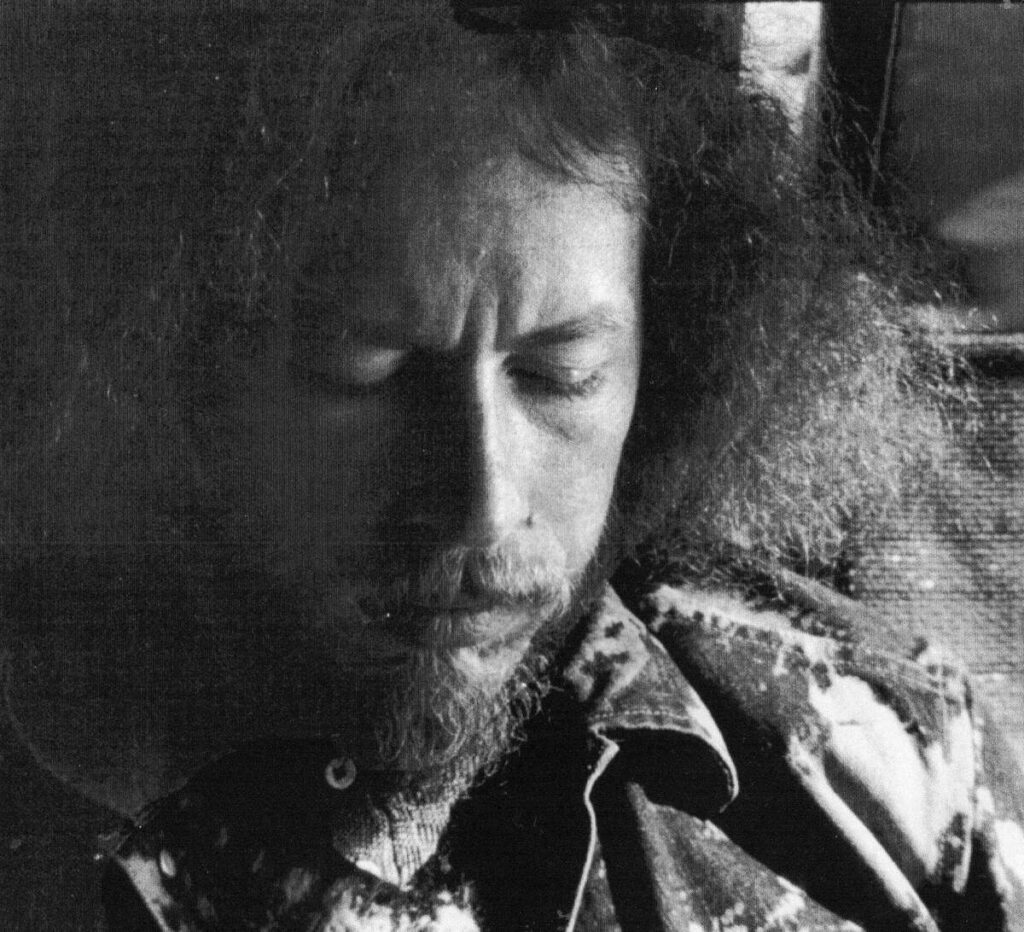
Did you ever find it difficult working with Frank?
Oh, gosh, not really. I mean, you know, he was demanding, and he should be.
Were you there at the infamous Montreux show in Switzerland in ’71?
Yes, I was. I’ll tell you a couple of things about that time. Number one, the tour was printed on a box of matches, if you will. Also, while we were touring, the station flooded—it was completely flooded with piss and shit and everything, and oh boy. If that didn’t tell you something, you know, as far as karma goes. The other thing was that at the concert, the place we played the night before Montreux, some guy ran out in front of the stage saying, “We gotta stop the show, there’s a fire warning.” So, we stopped the show, walked off stage, and then came back and started playing again. But I always found it really amazing that it was almost like an announcement for the next gig. So, when we played the next gig, of course, the fire broke out, and Mark Volman, who had just bought a brand-new hollow-body Gibson guitar, reached down to pick it up, and his foot went right through it. Completely through the guitar.
I had three gongs there, and gongs don’t burn in fire. At first, I thought maybe they vaporized or something, you know? But no. I’m almost certain that either the firemen or some other people stole the gongs. They were gone the next day. And I had the “big dog,” a 30-inch Paiste gong that I had since 1950, way before the Mothers.
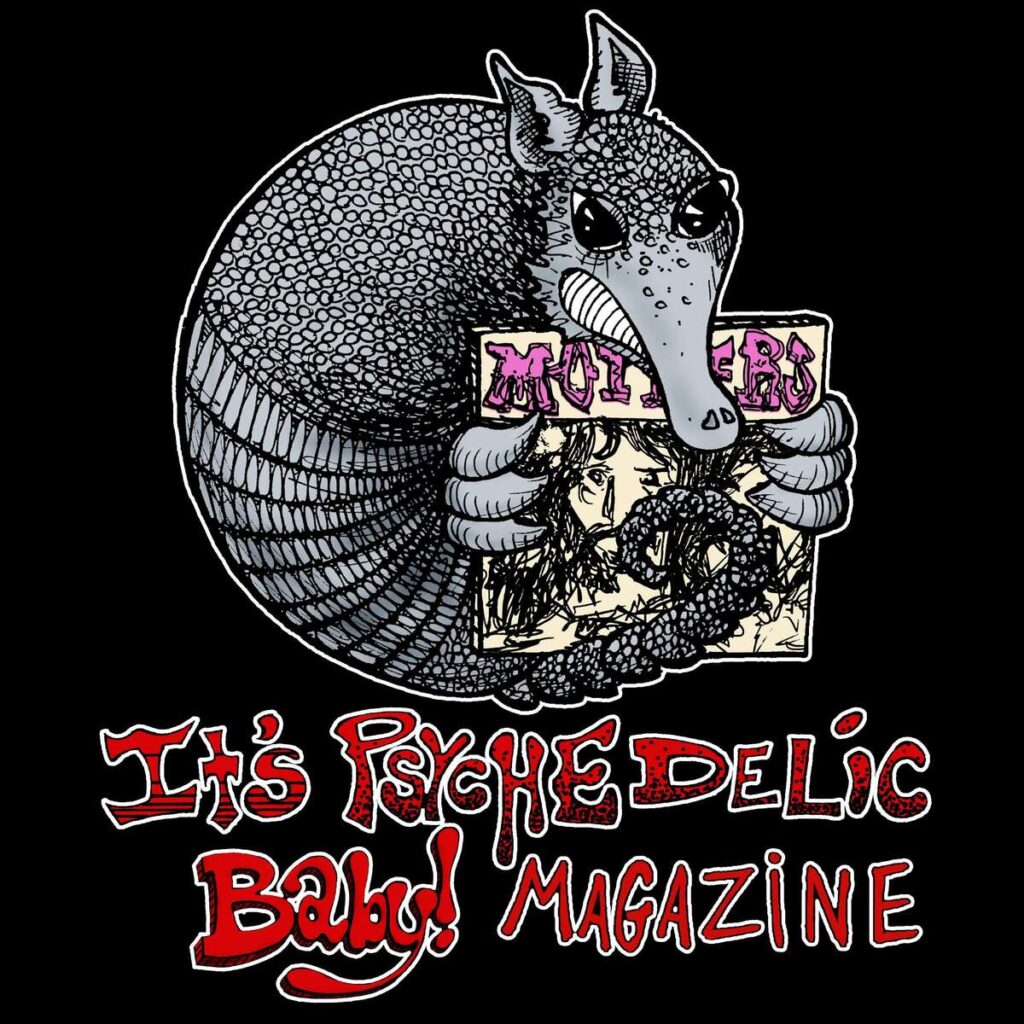
How about post-Mothers? I know you collaborated with a lot of different artists and did some solo work. But tell me, tell me about some of that.
Right about a few years before Frank died, I formed a band called the Grandmothers, who then became the Grandmothers of Invention. And so, we started touring. I think we toured all over Europe—I don’t know how many times—and all over the world. Australia, New Zealand. Just amazing. And we just played all the songs, you know?
Earlier today, I was listening to the Residents’ ‘Eskimo’ album. Are you featured on the entire album?
Yeah, I’m on the whole album. Well, probably not some pieces, but I don’t know what they call them—each individual piece. I have the album somewhere in here. I don’t have a record player, though.
What was that like?
There are only two Residents, and when I visited them, when I worked on ‘Eskimo,’ there were four guys. One guy was an accountant, and the other guy put all the money up for the band.
And so, they eventually fell by the wayside. The Residents went on to be who they are, and they got other people because they always showed four guys. So, they would always, you know, have those eyeballs on them. They would always get other people—really talented people—to be the other Residents. They’ve done really well for themselves because they’re so creative. They were actually art students in New Orleans, and they started doing what they call “mail art,” where they would do some artwork and mail it, and then they decided to put music with it. They started learning how to create music. And when I got there, they had a studio with an eight-track board and recorder, and they still didn’t know how to play, but they would just play it. I think their first album was based on a Beatles album, but you couldn’t tell because they couldn’t play the instruments, but they played at them, and they did a great job. They are pretty amazing guys. I’ve kind of grown out of touch with them.
Are there other collaborations you’d like to talk about?
Well, yeah. There would be if I remembered. The Grandmothers have been most of my life and all the stuff that we’ve done. For a while, I curated a space downtown, and I was only interested in new music and also jazz that was in that direction. That was a period of time in my life that was very special—getting to hear all these groups that were involved in that kind of music. I’m looking at my CDs right now, just looking for this electronic music that I’ve played with, but I can’t find it. I don’t know if I can unless you have other questions to ask.
Yeah, the rest of my questions were about what’s going on right now, which you’ve kind of started to fill me in on by talking about your solo performances in Europe. Is there a website or anything where I could find further information about your tour to share?
Not really. I mean, it’s just me, and I haven’t really put anything out there. I don’t know what to say. I released a book. That’s another thing I got involved with. It’s mostly poetry and a few stories. I’d like to read you this one song that’s called ‘When I Play Music,’ since it’s pertinent to what I do.
Yeah, I would love that.
It’s strange when I play music
It’s weird when I play music
A specific set of frequencies divided by 12
Up and down the audio range
Only 12 notes repeated
Billions of melodies made symphonies, concertos,
folk music, rock music, pop music
kabuki, flamenco, gypsy, zydeco, rhythm and blues,
country western, hip hop and rap to name a few
Out of just 12 notes
And what would it sound like?
It created the universe
The big bang
It ran throughout the void
Creating visions beyond our comprehension
Endless distances
Vast mind-boggling quantum qualities
It’s not enough that you press the keys,
Blow the horn,
To take the cat cut of nylon
I have to provide a way to listen while I play
To listen to that age impulse from somewhere inside
Showing me what or how to say the message
I intended of the piece
What I think? What I think?
The media comes out bad
If it could smell it,
It would stink
And it’s sad and it makes me mad
That I can’t force the music out
The money is limited
The voice I hear inside is not
He draws upon the creation of the universe
To Christ that works at the speed of thought faster than light,
Christ I might or can’t come close to that brilliance
That intelligence within the experience of 1000 lifetimes.
So, I tell my ego
Go! Go away!
Let this other voice in me play the music
Let these impulses be my guide,
My beacon in the night
Let me be the instrument that allows this inside essence to communicate all the emotion
and mathematical complexities of music.
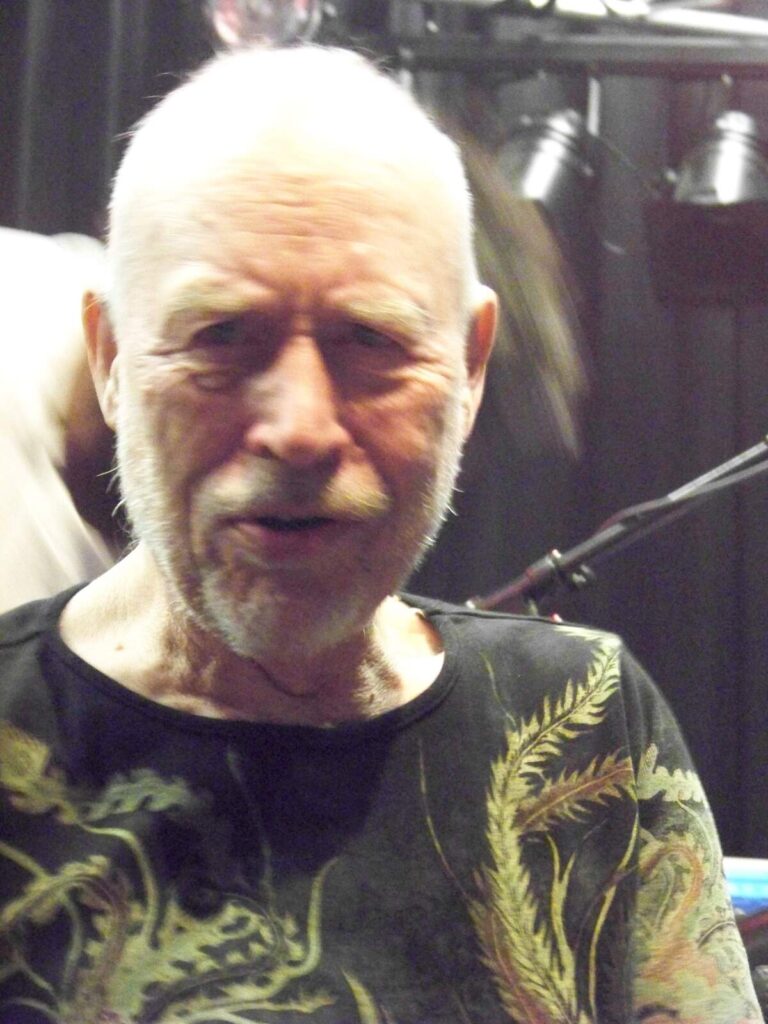
That was great, Don! Thanks so much for sharing that and for doing this interview. It’s been wonderful talking to you.
Likewise, very nice talking to you too. Thank you. All right, bye.
Written and illustrated by Justin Jackley
Headline publicity photo | Ron Kroon for Anefo – Nationaal Archief | The Mothers of Invention at Schiphol, October 1968. Back row: Roy Estrada, Frank Zappa, Don Preston. Front row: Jimmy Carl Black, Bunk Gardner.
Don Preston Facebook

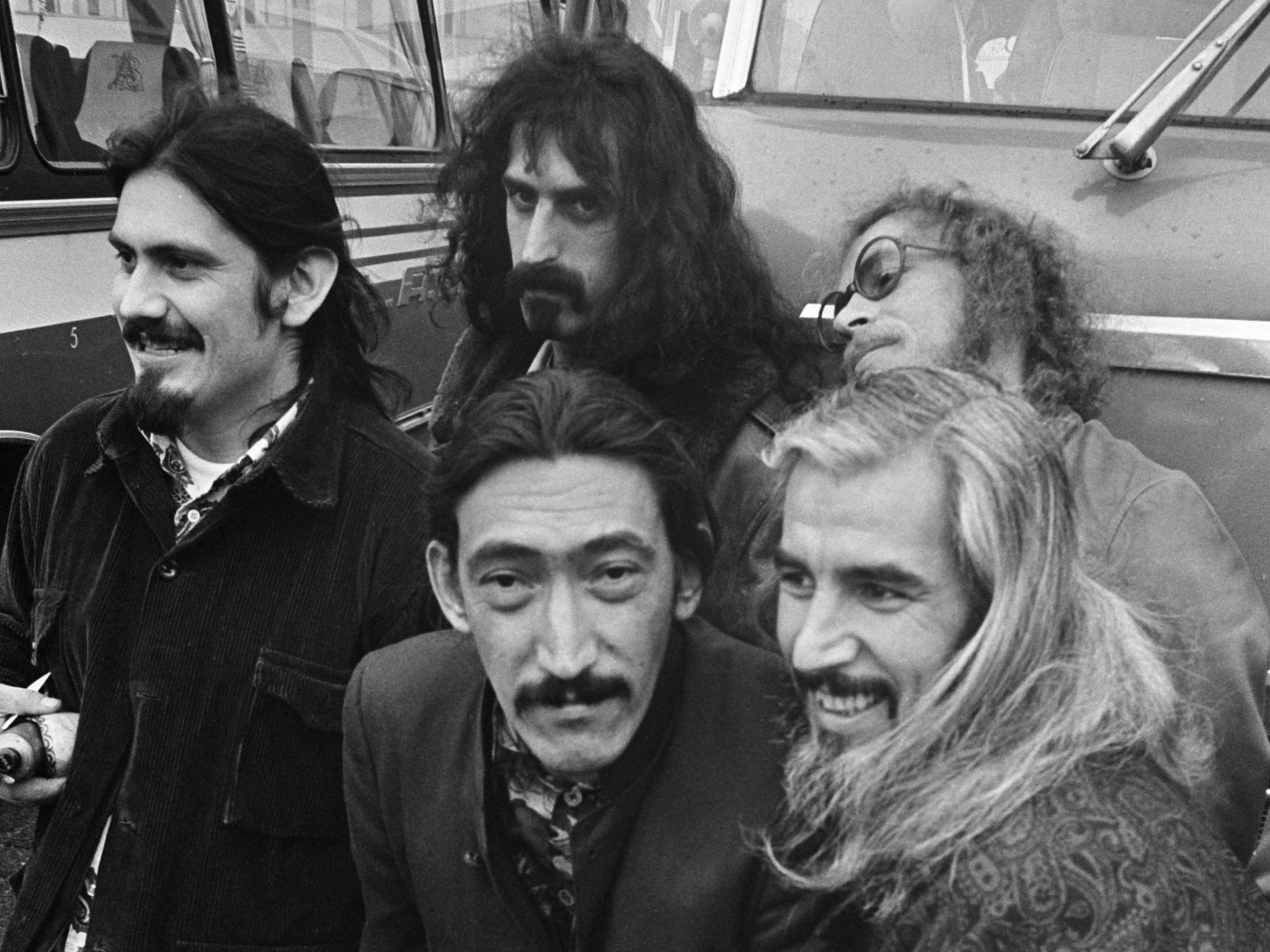
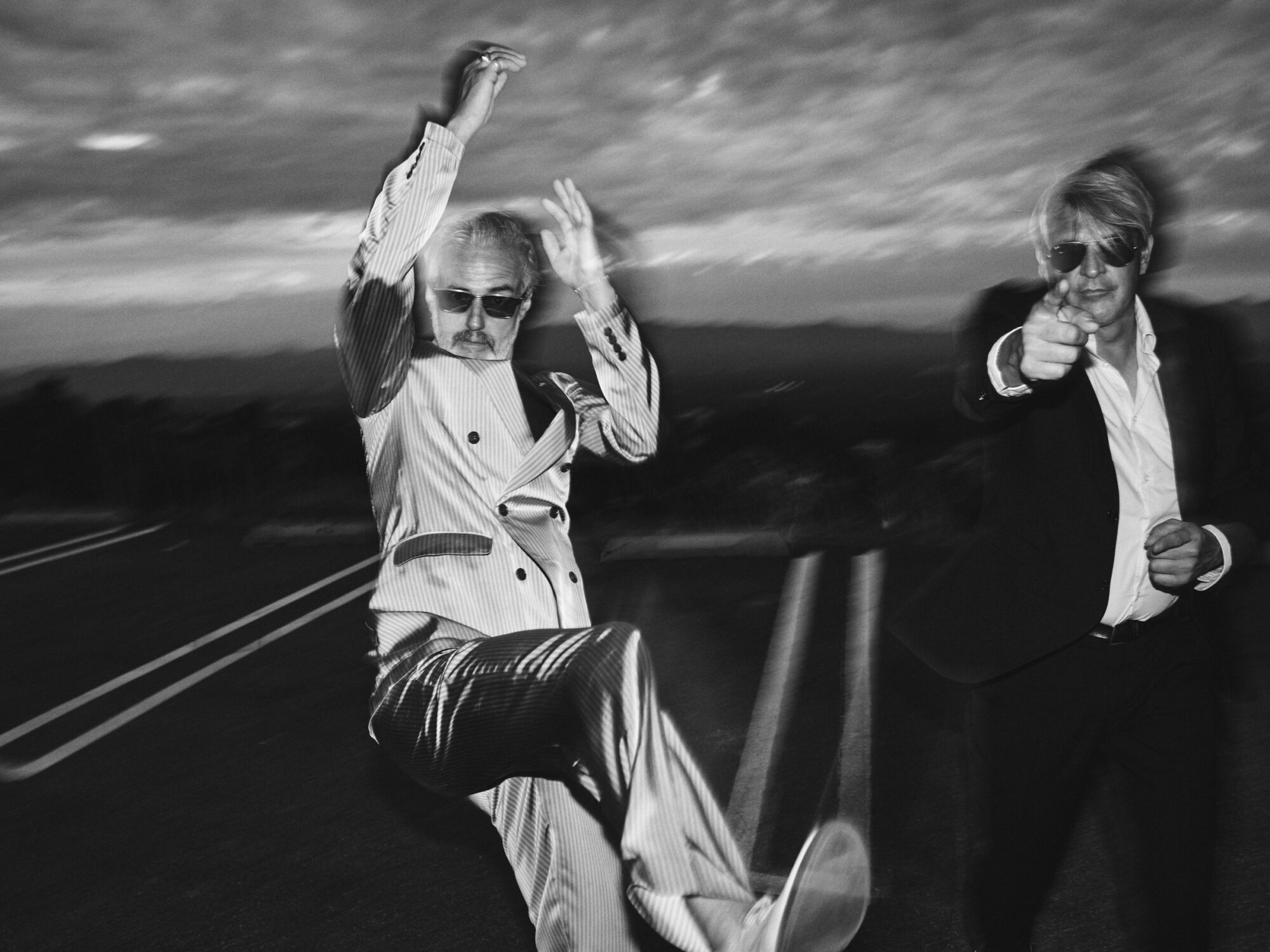
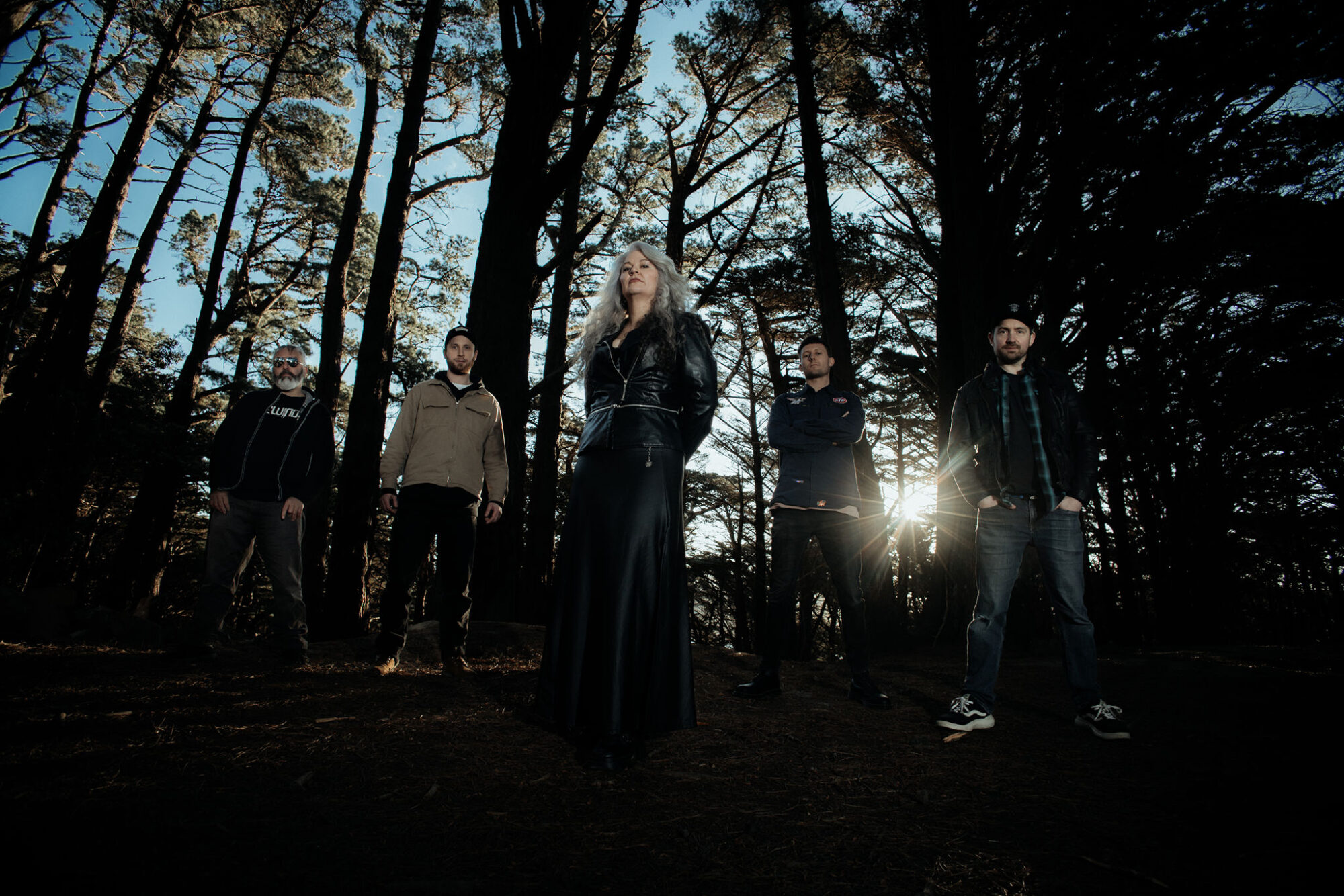
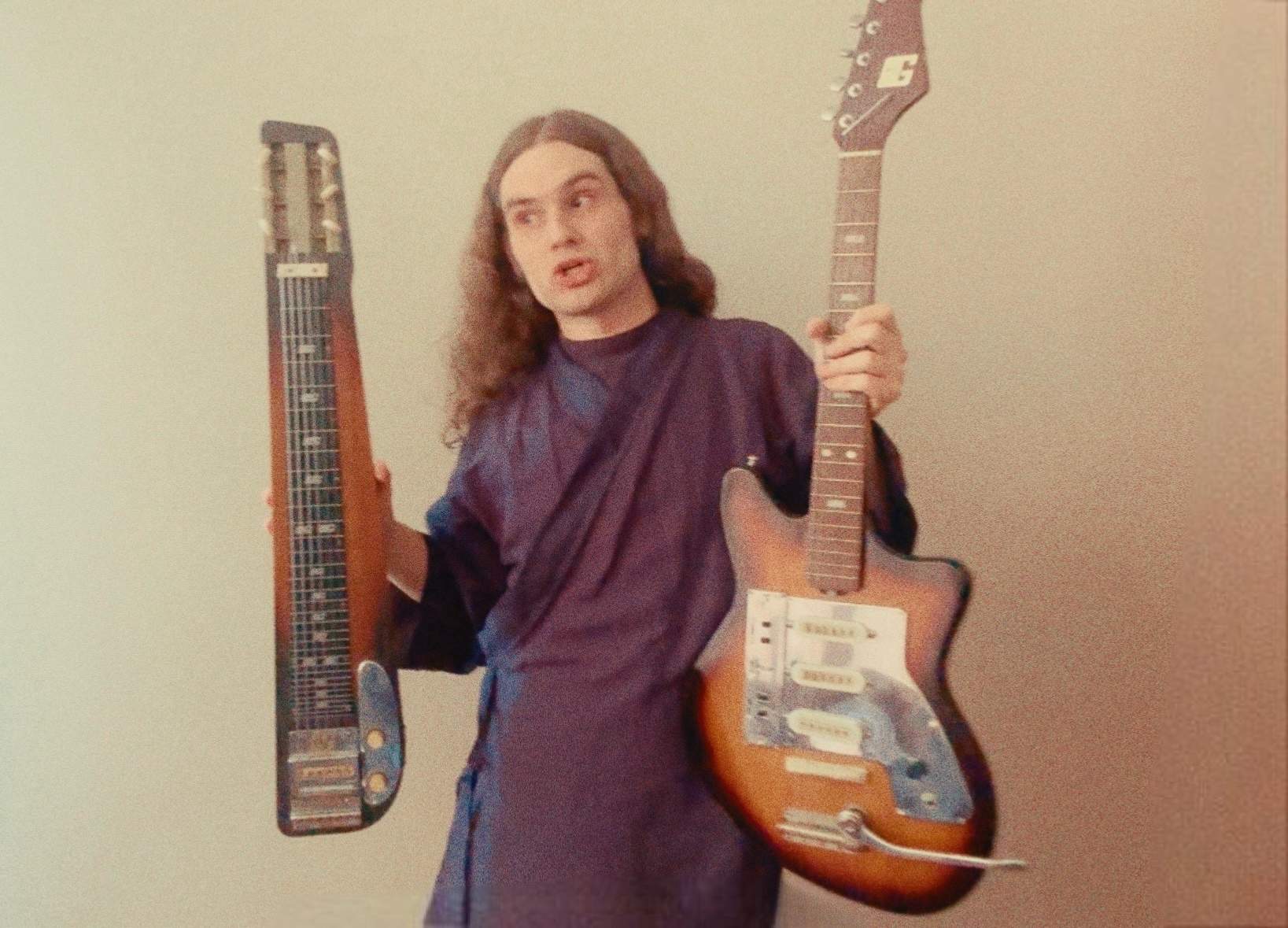
What a great interview! And every interview should end with a poem!